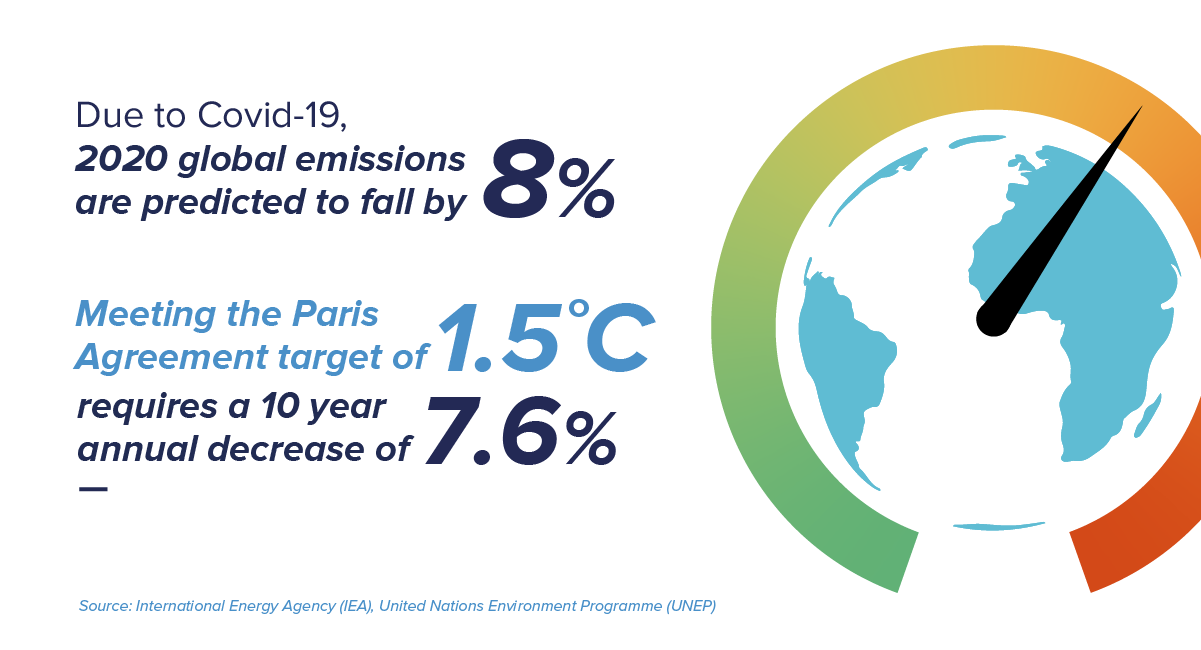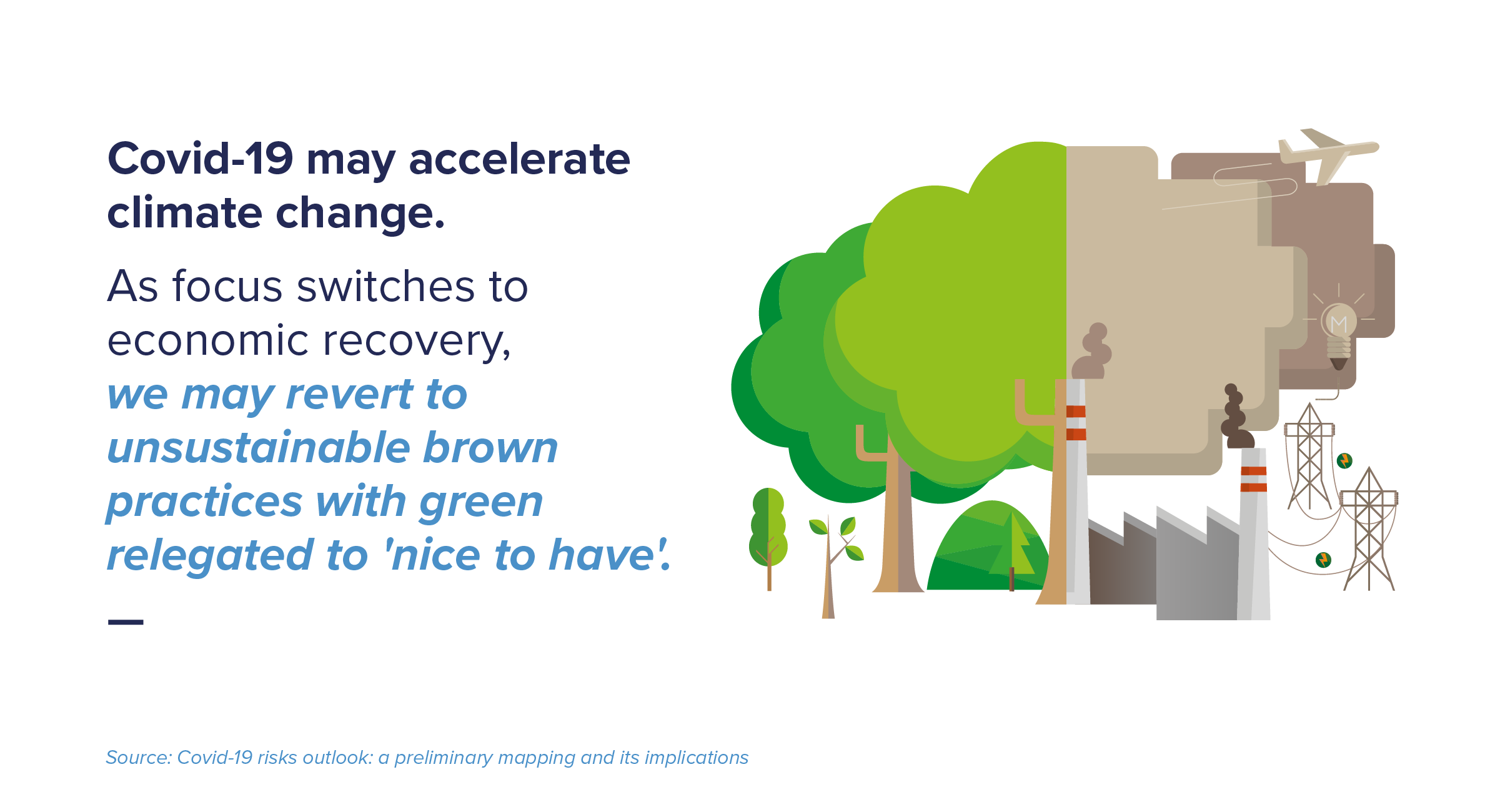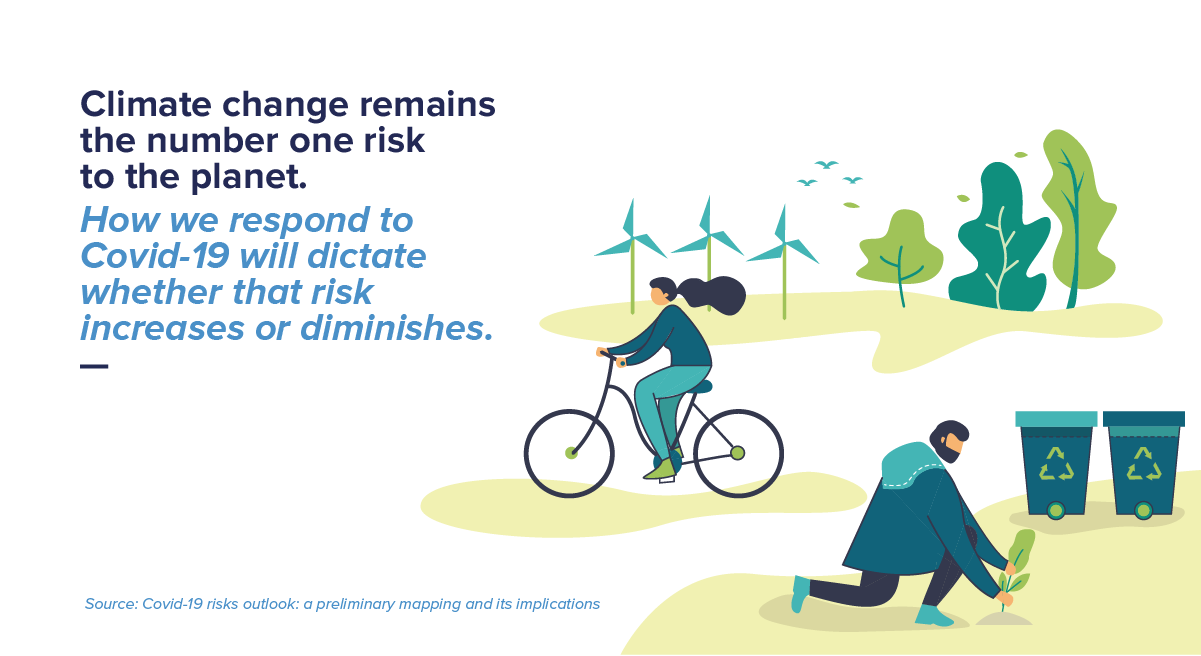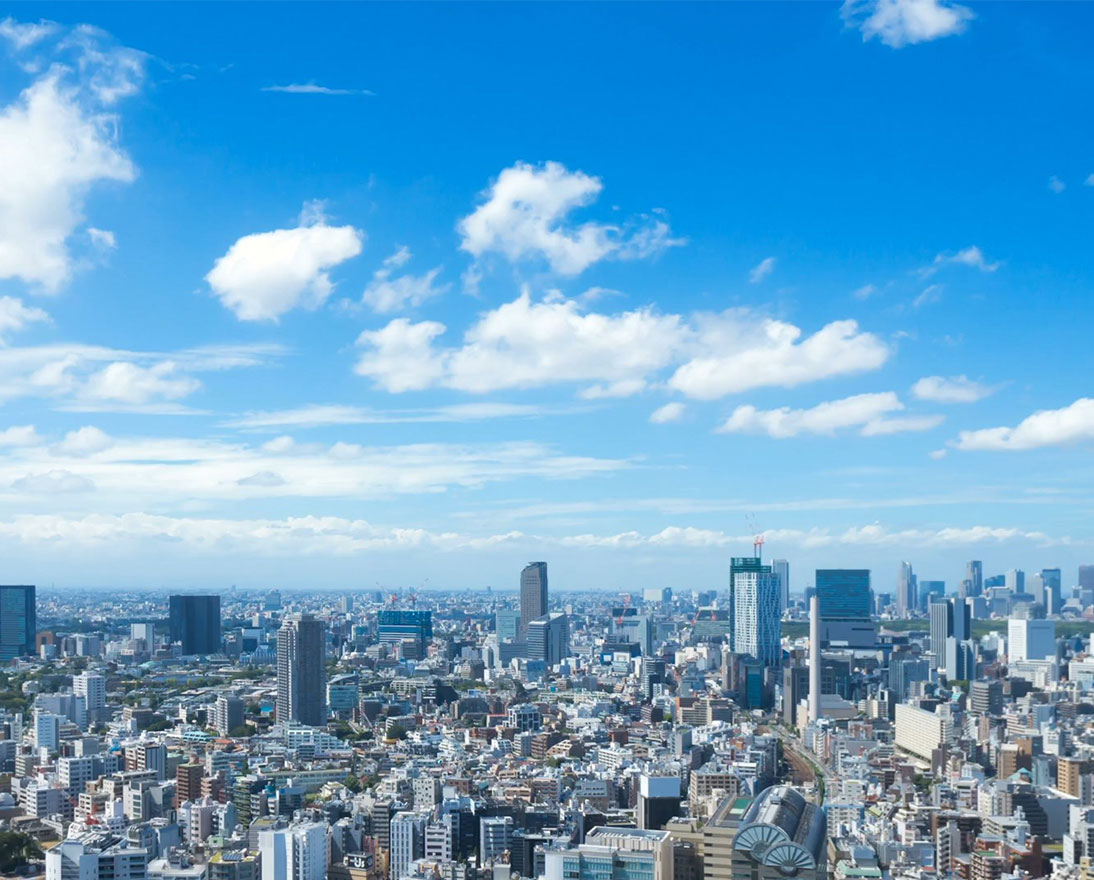Covid-19 and climate change: Can we keep the green agenda alive?
Climate resilienceArticleSeptember 1, 20206 min read
The economic recovery from the pandemic must not come at the expense of our environmental goals. Now is the time to strengthen our resolve and build back better
At the start of the Covid-19 pandemic, the secretary-general of the United Nations called for solidarity in the face of one of the greatest challenges in the UN’s 75-year history. While António Guterres addressed the immediate health crisis, he was also careful to underline the longer-term threat to the environment – and the imperative of staying on track to combat climate change.
“We have a framework for action – the 2030 Agenda for Sustainable Development and the Paris Agreement on Climate Change,”Guterres stated.
“We must keep our promises for people and planet.”
If there is a silver lining to something as catastrophic as Covid-19, it’s the environmental cleansing and the slowdown in greenhouse gas emissions that we experienced in the early part of the year. As industrial output plummeted, and as cars disappeared from roads and planes were grounded, people worldwide noticed a positive effect on their surroundings. The air was cleaner, there was less pollution, and nature began to regain control and restore the balance.

Statistics back this up. According to the International Energy Agency, global greenhouse gas emissions are predicted to fall by 8% in 2020 compared with 2019; and in early April, when the world was in lockdown, daily global carbon emissions dropped by 17% compared with last year. However, by early June, the Global Carbon Project reported that we were only about 5% below the figure for the previous June, indicating a return to the same depressing trajectory.
Worse than that, the real danger is that Covid-19 will accelerate climate change by compounding all the risk factors that threaten long-term sustainability and the UN target to limit global warming to 1.5°C.
Even before the pandemic struck, there were concerns about achieving the target. This was highlighted by Zurich in its white paper Managing the impacts of climate change and its ‘climate change scorecard’. In an update to the 2018 edition, Zurich noted that “while legislation, sentiment and social trends have shifted in favor of tackling climate change, actions are still falling short of what is needed to sustainably transition the global economy.”
Covid-19 may undermine concrete action as well as good intentions. We have already seen resolve weaken in the quest to build back regardless, rather than to build back better, with some governments relaxing or suspending environmental protection regulations to stimulate industrial activity. As governments, businesses and individuals focus on restoring shattered economies and livelihoods, we may revert to unsustainable ‘brown’ practices as the only practical option, with green now merely ‘nice to have’.

This is a false premise. As John Scott, Head of Sustainability Risk at Zurich, points out: “Everything has changed, yet nothing has changed. Our priorities remain the same and indeed have intensified because Covid-19 highlights risk dependencies. We must not separate our immediate health and economic priorities from the slower-moving, but ultimately greater, threat from climate change. If we neglect climate change as the most important existential global risk, there will be no point in rebuilding economies and lives if we sacrifice the future of the planet.”
In the World Economic Forum’s Covid-19 Risks Outlook (to which Zurich contributed), the message is clear: recovery without sustainability is a big mistake. “The gravest environmental fallout for the world is a shortfall of investment in climate action,” says the report, because it may perpetuate resource-intensive practices and increase global energy consumption and greenhouse gas emissions.
It’s a view reinforced by Charlotta Groth, a Global Macroeconomist at Zurich, who says that Covid-19 is a crisis that may amplify climate change. “Unless we build a green stimulus into all our recovery plans, we’ll suffer the long-term consequences. It’s the wrong moment to slow the momentum for carbon pricing, or to ease up on the removal of fossil fuel subsidies. Nor must we be diverted from developing cleaner and more efficient forms of energy, or lose enthusiasm for investments that promote sustainability. Now is the time to redouble our green efforts.”
Zurich is involved in a wide range of initiatives and remains focused on the environmental threat. As the first insurer to commit to the UN’s 1.5°C target, Zurich is vigorously pursuing its own carbon reduction strategy. It is also a founding member of the Net-Zero Asset Owners Alliance, a climate leadership group whose members have pledged to reduce the carbon emissions of their investment portfolios to net-zero by 2050.

Another Zurich initiative is Climate Resilience, by Zurich Resilience Solutions, a risk management approach that will help customers to develop solutions to adapt to climate change related events. Similarly, Zurich’s Total Risk Profiling (TRP) and other tools are placing climate change risk in a wider context.
These are just some of the ways Zurich is helping customers and communities to cope with natural disasters and extreme weather. It’s a role that entails being both an educator and an influencer, as well as a traditional insurer and a risk manager. Moreover, there is a conviction that insurance alone is not the panacea for climate change.
“Resilience demands a comprehensive viewpoint and collective responsibility,”says Scott.
“It must embrace policy, financial risk transfer, and many other risk factors that are perhaps less obvious. For example, when it comes to mitigating hurricane damage, it’s not just the physical levee that protects people; it’s also the planning, behaviors, actions and attitudes of multiple stakeholders that help us to understand and manage risk.”
If there is one thing that Covid-19 proves, it’s the global and systematic effects of risk and the importance of being prepared and resilient. It remains to be seen what impact the pandemic will have on Zurich’s next climate change scorecard, but the warning is clear: without a green recovery and a collective commitment to change for the better, the Paris Agreement will be meaningless.




